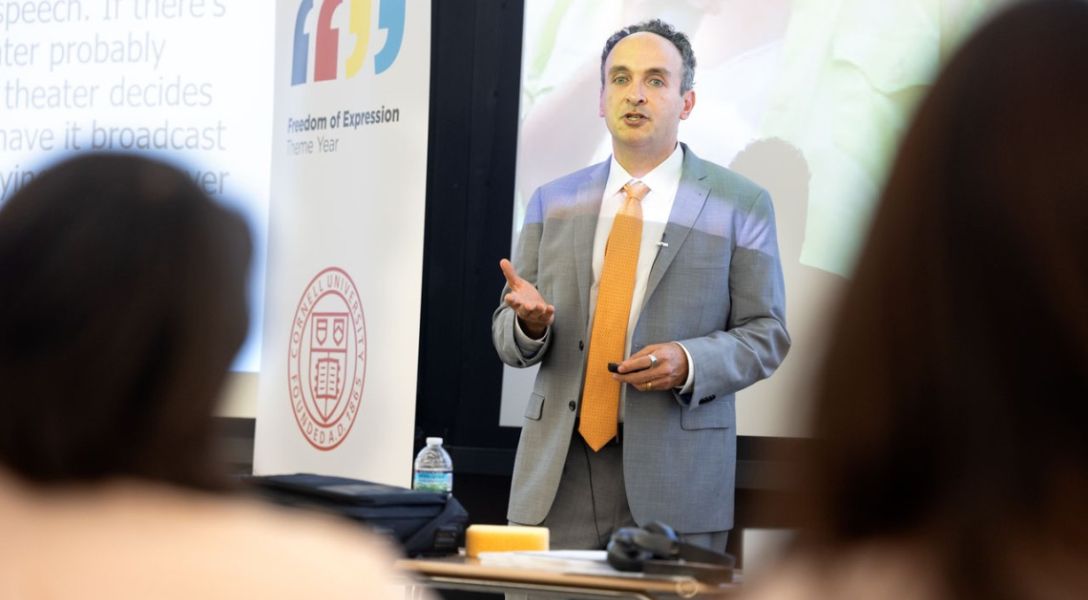DeAngelo Bailey picked on the wrong kid – a scrawny fourth-grader named Marshall Mathers – and Bailey found out how big a mistake it was some 20 years later.
That’s when Mathers – then better known by his stage name, Eminem – exacted revenge by embellishing Bailey’s bullying in a song on his 1999 breakout record, “The Real Slim Shady.” Bailey sued Eminem for casting him in a bad light – and lost, even though the lyrics weren’t completely true.
The Bailey vs. Mathers case is one of many examples Jeff Kosseff, associate professor of cybersecurity law in the U.S. Naval Academy’s Cyber Science Department, leans on to make his larger point: that the constitutional right to lie extends to every American – 15-time Grammy award-winning rappers or otherwise – so long as the high judicial bar for fraud, defamation or another narrow category of speech isn’t met. And it should continue to do so, even in the age of misinformation, he said.



